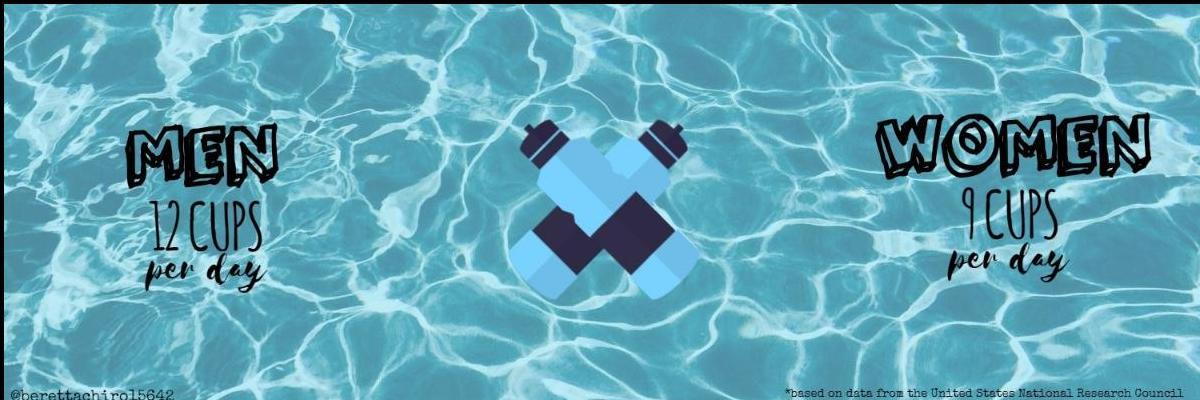How much water is too much water?
posted: Jun. 17, 2018.

It is transparent, tasteless, odorless, and (mostly) colorless and it is necessary for every form of life that we know of. Its water. This week’s post looks at the basic body functions that require water and answers the question of how much water we actually need.
Water makes up roughly 60% of our bodies and is an absolute necessity for survival. Our bodies require water to perform almost every one of the metabolic functions that keep us alive. To that point, in an emergency, the human body can survive up to 3 weeks without food (Gandhi did 21 days of complete starvation) however absolutely requires water within 7 days. In fact, at average outdoor temperatures in north America, your body would be incapable of surviving past 100 hours of water starvation.
[This is mainly to do with fat - we store a lot more fat than we do water. To survive you need to have a metabolism as well as food (calories, nutrients, fuel 1) and water (fuel 2) to run that metabolism. The water in our bodies is used up very quickly and we don’t have many biological mechanisms of storing extra water (safely) – so it comes down to a numbers game.]
What we know for sure is that a loss of 10% of your body weight in water is a medical emergency and the resulting hypovolemic shock will lead to death very quickly.
If you live a developed part of the world you likely already know all this. Most people have also recently become aware that there is a difference between surviving on the bare minimum of water intake and thriving on an ideal level of hydration. Imagine how you feel after spending a day outdoors without drinking enough water vs. how you feel on your best day.
Which of these functions would you want to spend a week without?

Yeah, I’d rather keep all of those too.
The basic questions on everyone’s lips is: How much water do I need? The answer is pretty simple: Enough.
The United States National Research Council, in their most recent evaluation of the literature, states that 0.98 gallons for men, and 0.71 gallons for women is the ideal volume of water needed by the average person per day. That’s including food, which amounts to about 20% of your daily intake. Thus, accounting for food intake, you should consume roughly 9 cups (F ) > ;/ 12.5 cups (M) of fluids per day. The key point is here is that fluids can be anything from milk to juice to coffee. You DO NOT have to consume 9 cups of pure, fresh from the spring, untainted water as a female (or 12 cups as a male) if you get your FLUIDS in daily.
Some medical literature states that water intake should be lower – hovering around 4.2 cups (1 liter) per day. Other sources claim you need anywhere from 4 to 14 cups per day!
As a general rule drink when you're thirsty - it is the first sign of dehydration. You can also use this handy equation;

Source: University of Missouri
Now, it doesn’t happen often, but you can OVER-hydrate if certain conditions are met.
Our bodies lose electrolytes as well as water when we sweat and eliminate waste. Hydrating with water alone can dilute already waning electrolyte levels. When there is too much water in your system compared to sodium (an electrolye), a condition called hyponatremia results. In this case the problem is your system has more water in relation to sodium causing an imbalance. If left unchecked, the lack of sodium in your interstitial fluid (the stuff between cells) can cause your cells to become damaged.
Now whether regular water is better than your favorite drink at Starbucks? Just remember, even though water is the major constituent in most beverages it does not mean all drinks are created equal – especially not in the eyes of your aching kidneys and liver after a long night at the local bar. Drinking plain old water is still regarded as the most efficient way of watering your body, if not the best.
If you have any questions or you'd like to discuss more on how to get the most of our of your hydration please leave a comment or get in touch with our docs via email - info@berettachiro,com.